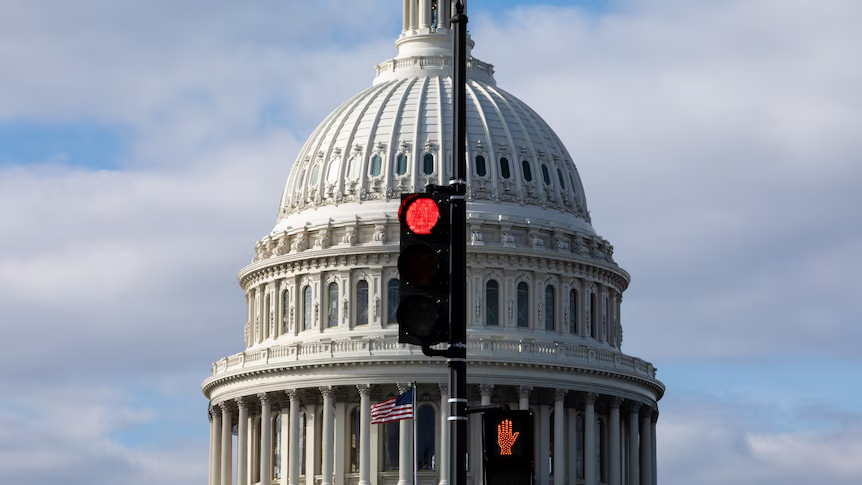Featured
article
- Get link
- X
- Other Apps
Congress in Crisis: Scrambling to Avert Government Shutdown

In a dramatic turn of events, the U.S. Congress is racing against the clock to prevent a partial government shutdown. This urgency follows the rejection of a demand by President-elect Donald Trump to lift the nation's debt ceiling. The House of Representatives, led by Speaker Mike Johnson, is attempting to navigate a narrow path that can satisfy both the Republican-controlled House and the Democratic-majority Senate as the midnight Friday funding deadline looms.
Conservative Republicans recently dismissed Trump's call for a five-year suspension of the U.S. debt ceiling, which could have added trillions more to the government's $36 trillion debt. This rejection has left Congress without a clear plan to avoid the shutdown. The situation is further complicated by Trump's insistence on extending the debt ceiling to 2029, a demand that has not gained traction among lawmakers.
The failure of a hastily revised alternative bill, which aimed to keep the federal budget running at its current level through March and provide $100 billion in disaster relief, has added to the uncertainty. This bill was rejected by a vote of 174-235, highlighting the deep divisions within the Republican Party and the broader Congress.
As the deadline approaches, the pressure is mounting on Congress to find a solution that can avert the shutdown and ensure the continued functioning of the federal government. The stakes are high, with potential disruptions to government services and paychecks for federal workers hanging in the balance.
Popular Posts
Trump's Six Words: "I'm Going to Stop the Wars"
- Get link
- X
- Other Apps
Smart Savings for a Sharp School Start: Canadian Parents’ 2025 Guide
- Get link
- X
- Other Apps



Comments
Post a Comment